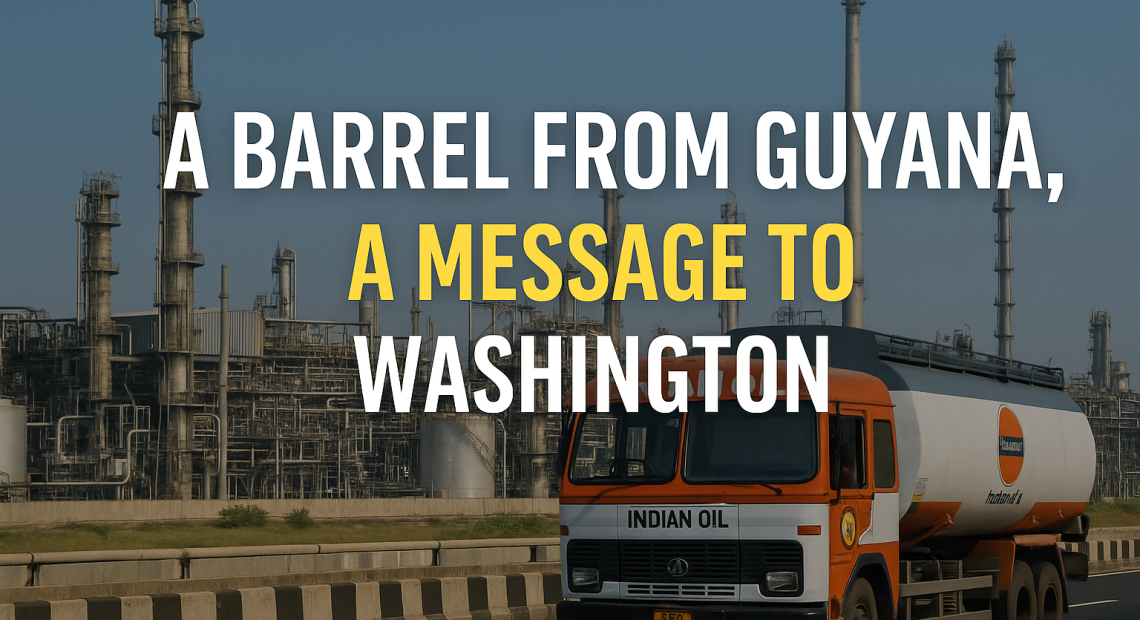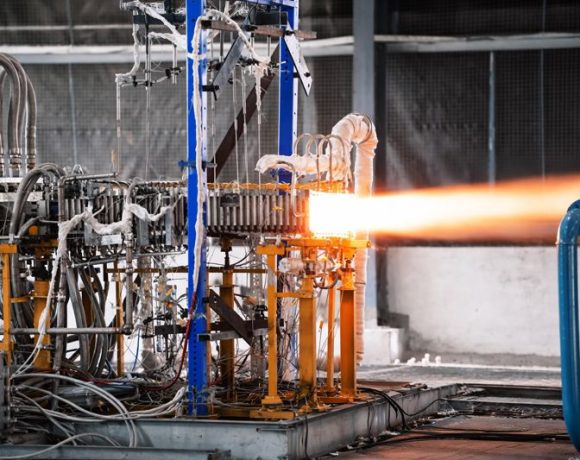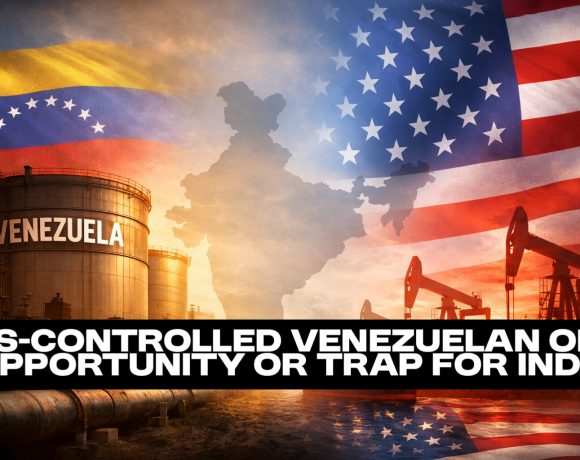
A Barrel from Guyana, a Message to Washington
India’s oil refineries have just signed their first-ever contracts to buy crude oil from Guyana. On paper, it’s a modest deal — 4 million barrels split between Indian Oil Corporation and Hindustan Petroleum. In practice, it’s the diplomatic equivalent of a wink: a small gesture with a big message. And that message is aimed straight at Washington and Donald Trump’s tantrum-prone trade team.
For months now, Trump and his minions have been fuming about India’s energy ties with Russia. In classic Trumpian fashion, the former real estate mogul turned tariff salesman decided that bullying works better than diplomacy. He slapped punitive tariffs on Indian goods and thundered that New Delhi must cut its Russian oil lifeline. The logic, if we can call it that, is simple: punish India into submission, and hope the rest of the world falls in line too. Unfortunately for Trump, this isn’t a Manhattan boardroom deal. It’s global energy politics — and India doesn’t do “submissive.”
A Drop in the Ocean, a Wave in Diplomacy
Let’s be clear: the Guyana order is not about volume. India imports around 45–55 million barrels of Russian crude every single month. By comparison, 4 million barrels from Guyana is barely a week’s worth of Russian supply. Economically, it’s a drop in the ocean. But diplomacy is often about symbols, not sums. New Delhi is making a point: we’re willing to test alternatives, we’re not blind to U.S. concerns, but we’ll do it our way, on our timeline.
This is not surrender. It’s stagecraft. The Modi government is telling Washington: “Fine, here’s your token diversification. Happy now? Good. Now stop trying to micromanage our energy policy.”
Why Russia Still Matters
The real reason India buys from Russia is brutally simple: it’s cheap. Russian crude comes with discounts of $8–12 per barrel compared to Brent, and shipping routes are shorter and cheaper than hauling oil all the way from South America. That discount matters — not for bureaucrats or diplomats, but for ordinary Indians filling their scooters and tractors.
Replacing Russian oil with premium-priced Guyanese barrels would send fuel prices soaring at home. No Indian government, no matter how nationalist or reformist, will commit political suicide just to please Washington. A 50 paisa rise in petrol prices can spark protests; imagine what happens if every litre jumps because Trump wants a photo-op with Exxon.
The Economics Trump Doesn’t Understand
Here’s where Trump’s school of diplomacy collides with reality. He thinks tariffs and threats can strong-arm India into compliance. What he misses is that India’s first obligation is to its own people — not to American oil companies or electoral optics in Pennsylvania.
Every dollar extra India pays for crude translates into inflationary pressure. It affects farmers, transporters, factory owners, and the middle class. Washington can play sanctions poker; New Delhi must manage domestic unrest. That’s the difference between campaign rallies and governance.
A Lesson in Respect
Trump and his minions treat India like a junior partner, someone to be lectured and punished when it disobeys. But India is not a subcontractor in America’s foreign policy shop. It is the world’s most populous democracy and the fifth-largest economy. It is a swing player in global trade, technology, and security. Respect is not optional — it is the entry price for partnership.
By buying Guyanese oil, India is essentially saying: “We’ve acknowledged your concern. Now acknowledge ours. We’ll test alternatives, but we will not abandon Russian barrels overnight. Show us respect, or watch us look elsewhere.”
Strategic Autonomy, Crude Oil Edition
India has a long history of strategic autonomy — refusing to be dragged wholesale into any camp. In the Cold War it balanced Washington and Moscow; today it balances trade with the U.S. and cheap energy from Russia. This isn’t fence-sitting. It’s survival.
Energy is national security. India won’t gamble that away for tariff relief or hollow praise. The Guyana deal is a reminder of that principle. It shows flexibility without conceding sovereignty. It’s a polite diplomatic bow — not a bent knee.
The Takeaway for Washington
The U.S. risks losing India if it continues down the path of condescension. Bullying only strengthens the case for New Delhi to cling tighter to Moscow, or worse, open its doors wider to Beijing. If Washington wants real partnership, it must learn the art of respect. Carrots, not sticks; respect, not diktats.
A barrel from Guyana won’t fuel India’s cars. But it fuels a powerful message: India is not your vassal. It will choose its energy partners as it sees fit. If Trump and his trade warriors want to build a meaningful relationship, they should remember one simple truth: in the world’s biggest democracy, oil policy isn’t written in Washington. It’s written in New Delhi.


















